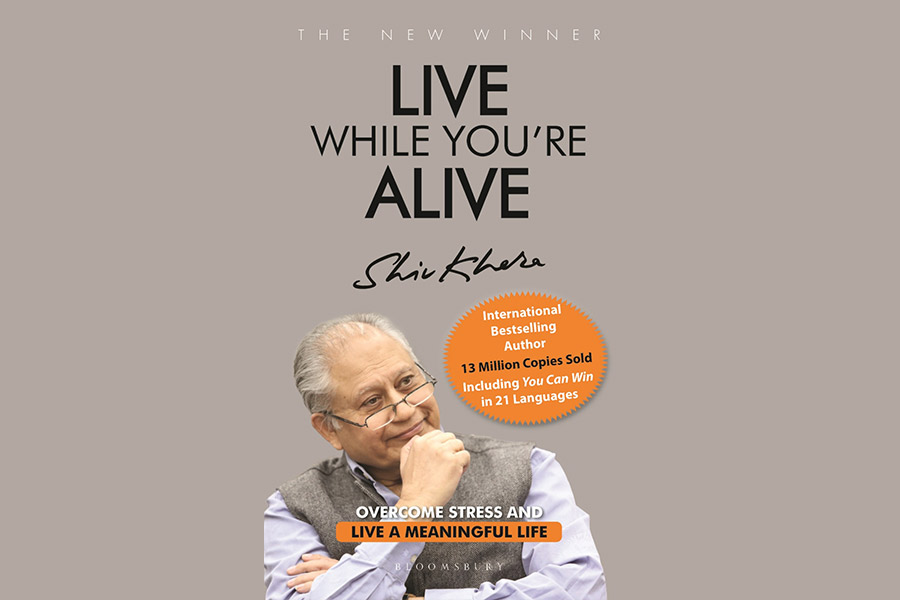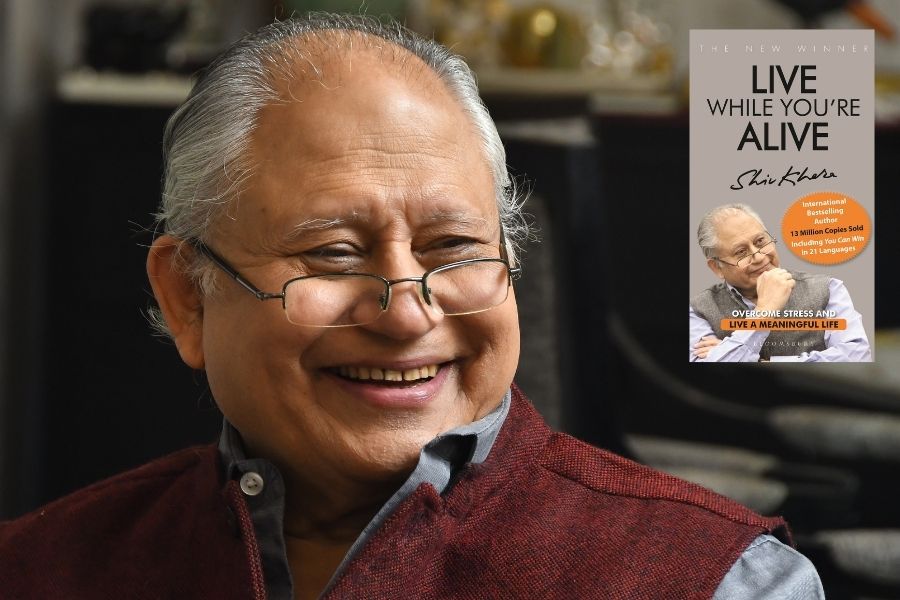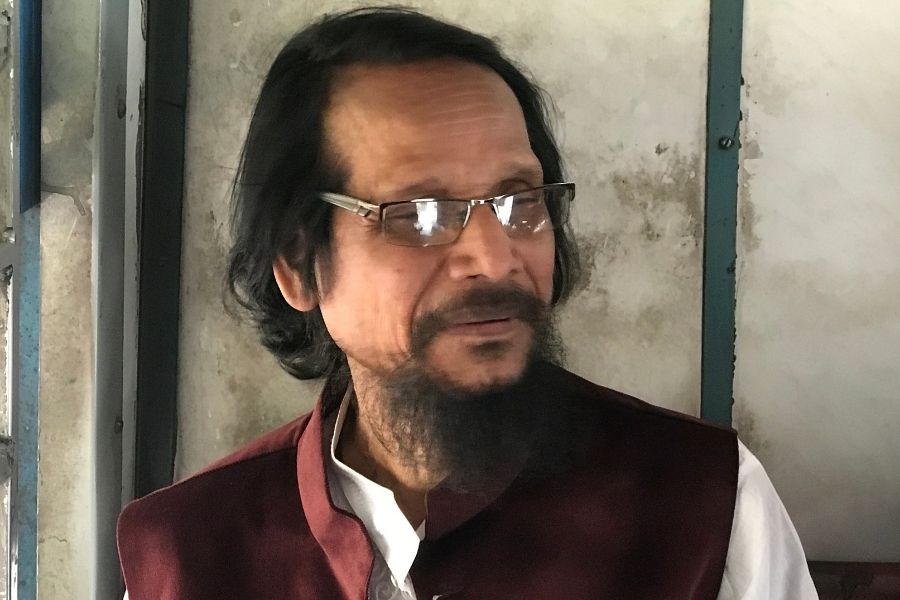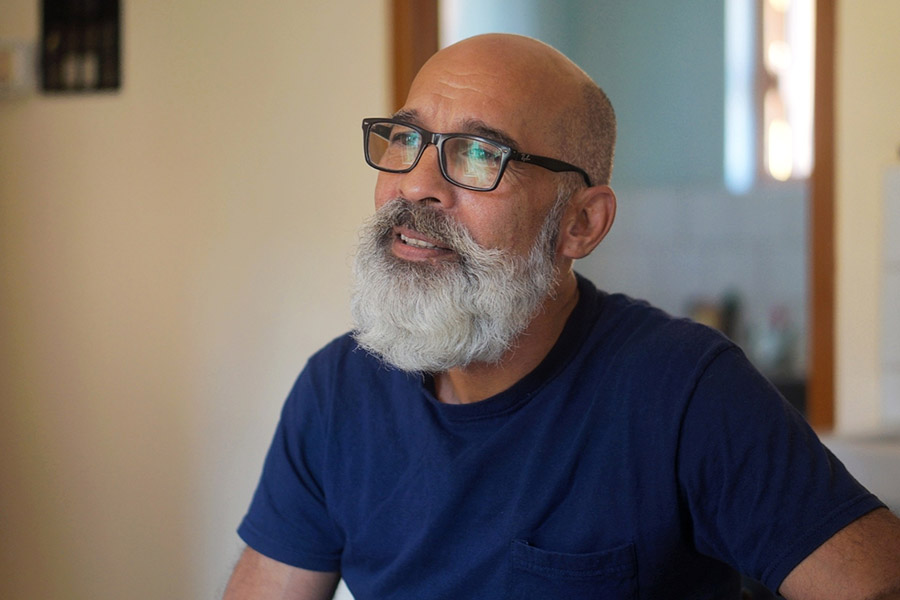It’s everywhere, yet we often ignore it until it takes a toll. Stress seeps not only into our work and relationships but also affects our gut. In his new book Live While You Are Alive, bestselling author Shiv Khera confronts this invisible enemy, offering practical ways to take control before it takes control of us. In an exclusive chat with My Kolkata, Khera reveals the inspiration behind the book, along with actionable tips to break free from stress.
My Kolkata: Why did you choose to focus on stress in this book?
Shiv Khera: There’s a little saying, ‘We live only once’. The reason why I wrote this book was that I disagree with the saying. We only die once. We live every day, provided we know how to live.
Stress has become a reality all over the world. Over the past two decades, depression has gone up by 400%, including within the medical profession. I did a programme for the NHS and found that 40% of doctors are suffering from depression and 17% have considered suicide. This is a global problem. Through my book, I wanted to show how stress isn’t just a reality, but completely normal and unavoidable. At the same time, everyone has to handle stress.
What role has stress played in your own life?
I come from a business family which had coal mines in India. When the mines were nationalised, we were brought to the streets. I tried my hand at three businesses and failed in all of them. I then moved to Toronto and started washing cars by going from door to door. Next, I started selling life insurance, where my manager wanted to fire me after three months for non-performance. All of these situations were incredibly stressful. But they are what made me perform.
Around this time, I attended a session by Norman Vincent Peale, the author of The Power of Positive Thinking. It was a turning point in my life. I asked his manager for one more shot, and he gave it to me. The next year, I made a sale in excess of one million dollars. Within three years, I had touched the five-million figure. It prompted me to move to the US, buy a company, and sell it for close to 500 times its price.
How did this happen? I kept failing because I kept blaming the whole world for my failures, not realising that I was my biggest problem. The day I realised this, even though nothing had changed on the outside, I changed the direction of my life by changing something inside.
How is Live While You Are Alive different from other books on stress?
Most of the books out there are addressing stress through yoga, meditation and breathwork. Many consultants and doctors also suggest changing your environment or taking a vacation. My book is completely different.
Irrespective of how beautiful a beach or a mountain is, people with a negative attitude will carry their problems wherever they go. If your attitude isn’t positive, no amount of meditation, yoga, or deep breathing will help you. Two people can face the same challenges but respond differently. Why do some people break records while others break themselves? It is our attitude. My book addresses stress from this attitude that we approach it with.
What, according to you, are the main causes of stress?
Stress is of two major types: external and internal. A death in the family, a traffic jam, the Russia-Ukraine war; these are all external events. We can't do anything about them. The only thing we can control is our internal reaction to them.
We must understand that, by itself, stress isn’t creating problems. If I hold a glass of water weighing 200g in my hand, it's no big deal. But if I hold it for an hour, my arm will start hurting. If I hold it for two hours, I might get a cramp, and after the third hour, the arm might become paralysed. But the weight of the glass hasn’t changed. The same thing happens with stress. We can all handle it for a little while, but when stress is prolonged, it becomes overwhelming. It is like a termite, eating the tree from inside till it destroys it completely.
If you are stuck in an hour-long traffic jam, you can brood and get mad. That just creates unnecessary stress. Or, you can listen to an educational or motivational podcast and feel good about investing that time in learning. The same problem can be handled very differently.
Let me explain this with an example from the book: A man once went to a spiritual master and said, “I am fed up with my job. My boss is nasty, and I am overworked and underpaid. Bless this pain away.” The master asked, “Should I give you the blessing of being fired?” He replied, “No!” The moral is having a job and being fired are both problems. Everything comes down to management and mismanagement. If you manage your job, it is profitable. If you mismanage it, there is loss. Same with your health, relationships and finances. The problem is not out there, it is inside us. How we respond internally to stress makes all the difference.
So, can stress sometimes be positive, too?
Definitely. Positive stress is what makes us perform. An athlete at the Olympics or a public speaker in front of a large gathering would not be able to perform without stress.
For example, the thoroughbreds at a racecourse are not walking into the cabin completely relaxed. They are jumping out of heavy stress. When the bell rings and the door opens, they start running with a bang! But if you take a jackass to the racecourse, he won’t jump. He will walk casually and never perform like a thoroughbred. Stress is the price we pay to be a thoroughbred in life.
Performance-inducing stress is often linked to the ongoing conversation around work-life balance. What is your take on it?
A perfect work-life balance is an ideal — not always a reality. In a start-up, can entrepreneurs get their business up and running by just working six-eight hours a day? The answer is ‘no’. Most start-ups are putting in 12, 14, even 16 hours per day. Bill Gates said that for the first 21 years, he did not know what a vacation was. Even today, an average CEO in the US works over 60 hours a week. Is that balance? No. To be honest, I haven’t achieved balance in my own life — it’s something we all have to strive for.
At the same time, today’s generation often says, if you work smart, you don't have to work hard. The truth is, you need both to be successful. You can’t become a neurosurgeon or earn a black belt by taking a weekend course. Everything in life has a gestation period.

The book covers everything from health to relationships and general life stressors Bloomsbury
While your book deals with how we can combat stress at an individual level, do you also believe that a lot of stress is systemic?
Definitely. Over the past 45 years, I have seen unemployment, inflation and many other problems gaining prominence in India. One example that comes to mind is the lack of a uniform education policy, which I am filing a PIL against. Most Indian states including Bihar, Uttar Pradesh and Madhya Pradesh have separate education boards with separate curricula. But when students from around the country have to compete for a national uniform test like the NEET, so many of them from regional education boards are deemed unfit. When school curriculums aren’t the same, how can students have a fair competition in the same test? Issues like these are not only causing huge stress, but also pushing Indians to leave the country. We must hold the system accountable and work toward rectifying these inequalities for future generations.
But it’s not just the system — society is also amplifying stress. There’s an unhealthy obsession with materialism, where success is measured solely by wealth. To be honest, nothing is wrong with materialism. I myself like the big car and the big home. But judging self-worth by net-worth is a hollow concept. It fuels jealousy, making people crave what others have but they don’t. As a result, many are buying things they don’t need, with money they don’t have, to impress people who don’t matter. The younger generations, caught up in this illusion, are experiencing major stress because of living in this fake world.
What are you working on next?
In fact, I’m working on three new books! The first one is on relationships, the second one is on parenting and the third one already has a proposed title, The Corrupt Cowards Can Never Create a Great Nation!












